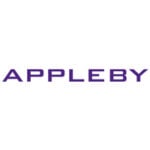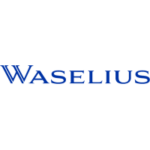-
What are the regulators for fintech companies in your jurisdiction?
-
Do you foresee any imminent risks to the growth of the fintech market in your jurisdiction?
-
Are fintechs required to be licensed or registered to operate in your jurisdiction?
-
What is a Regulatory Sandbox and how does it benefit fintech start-ups in your jurisdiction?
-
How do existing securities laws apply to initial coin offerings (ICOs) and other crypto assets, and what steps can companies take to ensure compliance in your jurisdiction?
-
What are the key anti-money laundering (AML) and Know Your Customer (KYC) requirements for cryptocurrency exchanges in your jurisdiction, and how can companies implement effective compliance programs to meet these obligations?
-
How do government regulations requiring licensing or regulatory oversight impact the operations of cryptocurrency and blockchain companies in your jurisdiction, and what strategies can be employed to navigate these varying requirements?
-
What measures should cryptocurrency companies take to comply with the governmental guidelines on tax reporting and obligations related to digital assets in your jurisdiction?
-
How can blockchain companies address data privacy and protection regulations in your jurisdiction, while ensuring transparency and security on decentralized networks?
-
How do immigration policies, such as the U.S.’s H-1B and L-1 visas, impact the ability of fintech companies to hire international talent in your jurisdiction?
-
What are the key regulatory and compliance requirements that a fintech must address when entering the market in your jurisdiction, and how can the company ensure adherence to all applicable laws and regulations?
-
How should a fintech approach market entry strategy in your jurisdiction, considering factors such as target customer demographics, competitive landscape, and potential partnerships with banking and other financial institutions?
-
What are the primary financial and operational risks associated with entering the market in your jurisdiction, and how can the fintech effectively mitigate these risks to ensure a smooth transition and sustainable growth?
-
Does your jurisdiction allow certain business functions to be outsourced to an offshore location?
-
What strategies can fintech companies use to effectively protect their proprietary algorithms and software in your jurisdiction, and how does patent eligibility apply to fintech innovations?
-
How can a fintech company safeguard its trademarks and service marks to protect its brand identity in your jurisdiction?
-
What are the legal implications of using open-source software in fintech products in your jurisdiction, and how can companies ensure compliance with open-source licensing agreements?
-
How can fintech startups navigate the complexities of intellectual property ownership when collaborating with third-party developers or entering into partnerships?
-
What steps should fintech companies take to prevent and address potential IP infringements, such as unauthorized use of their technology or brand by competitors?
-
What are the legal obligations of fintechs regarding the transparency and fairness of AI algorithms, especially in credit scoring and lending decisions? How can companies demonstrate that their AI systems do not result in biased or discriminatory outcomes?
-
What are the IP considerations for fintech companies developing proprietary AI models? How can they protect their AI technologies and data sets from infringement, and what are the implications of using third-party AI tools?
-
What specific financial regulations must fintechs adhere to when deploying AI solutions, and how can they ensure their AI applications comply with existing financial laws and regulations? Are there specific frameworks or guidelines provided by financial regulatory bodies regarding AI?
-
What risk management strategies should fintech companies adopt to mitigate potential legal liabilities associated with AI technologies?
-
Are there any strong examples of disruption through fintech in your jurisdiction?
-
Which areas of fintech are attracting investment in your jurisdiction, and at what level (Series A, Series B, etc.)?
Malta: Fintech
This country-specific Q&A provides an overview of Fintech laws and regulations applicable in Malta.























